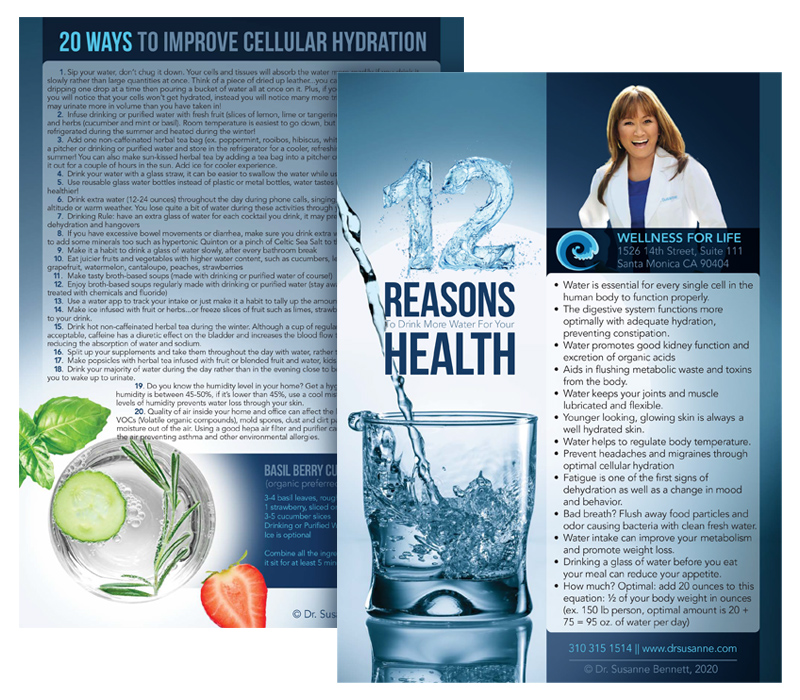The climate crisis is front and center, or should be front and center, of our national and international policy conversations. As we think about our personal health and wellness—our fitness, nutrition, longevity—we can draw a link between the state of our bodies and the environment itself.
It’s a concept you’ve probably heard stated before, but I would encourage you to consider it more deeply: the earth itself is a living organism. It operates according to rhythms and processes that intimately mirror our own biology.
Let’s look at some ways our lives and health directly parallel the life and health of the planet.
1. Biodiversity is Integral
Our modern lifestyle drastically impacts the conditions of both our continental ecosystems, and the ecosystems housed within our bodies. The creep of modern pollutants and global warming continues to endanger a variety of species and alter the larger biosphere.
We can see the impaired biodiversity in the natural world first hand. On the bodily level, nutrient deficiencies, chemical exposure, prescription drug use and over-reliance on processed foods causes a similar dearth of healthy gut bacterial and microbial diversity within our bodies. Increasing research points to how the gut acts like a second brain, influencing everything from digestion and nutrient delivery, to hormone regulation and immune response.
We need those essential microbial components that comprise a thriving microbiome. Just like the larger organisms that populate the world, depleting them alters our functionality, ecosystem, and lifespan.
2. Levels of Toxicity
It’s indisputable. There is a direct relationship between toxicity in the environment and toxicity in the body. More of one leads to more of the other. We should be particularly concerned about coal plants, both locally and in developing countries, whose emissions enter the air, circulate the globe, and make their way into our bodies.
Just as the planet’s land, water and air absorb an abundance of toxins, so do our own organs, blood, and breath. In the body of every human you’ll find increasing amounts of:
-
- pesticides
- heavy metals
- environmental pollutants
- plastics
- prescription and recreational drugs
- chemicals and more
All of this needs addressed at both the macro and micro level. Reducing exposures to toxins, opening up detoxification pathways and optimizing the body’s own innate cellular metabolism is essential to live a long, healthy, disease-free life.
3. Nutrient Deficiency
Nutrient deficiency grows more and more pronounced in our land and water. A lack of crop rotation and other poor farming practices result in diseased plants and rampantly depleted soil. Testing has shown how farm soil from the 30s held far richer mineral content than our current soil..
We humans subsequently exhibit our own deficiencies as we consume a range of foods and produce that lacks its intended nutrient value. Sustainable farms, personal gardens, homegrown herbs, and a push for organic production can make a big difference toward restoring this vital component.
Additionally, the lakes and glaciers in unspoiled regions of the earth contain pure essential mineral nutrients that become contaminated as the water flows into more stagnant and toxic collection points. We’re then required to get rid of these toxins through purification processes that take out the minerals altogether and often add a detrimental dose of substances like fluoride and chlorine.
If you’re interested in restoring your purified drinking water to the same state of mineralization found in nature, check out the Vitalizer Plus—a product that reintroduces these essential minerals and creates the optimized hexagonal structured water found in natural glacier water which perfectly enmeshes with the protein molecules of different cell structures.
4. Water Ratio and Hydration
Have you ever noticed how your body and the earth are each made of 60-70% water? This balance is essential for movement, energy conversion, temperature regulation—the harmony we need to fulfill every biological process. Think of how rivers and lakes operate exactly like your bloodstream, delivering nutrients throughout your body.
While the climate warms and ocean levels continue to rise, so many human activities cause corresponding inland trauma. We’ve noted a rise in desertification and deforestation, much like the dehydration we often inflict on our own bodies through a combination of overexertion and neglect.
Humanity as a whole is stymied when our land can’t hydrate itself to maintain crop growth and appropriate animal populations. We individual humans likewise harm ourselves by habituating an inadequate water intake—and dehydration sets in far more often than we realize. This state of dehydration prevents our bodies from producing optimal levels of energy and properly absorbing the nutrients we ingest. It also slows the flush of cellular waste which can ultimately lead to premature aging and organ dysfunction.
5. Ocean Acidification
As we’ve tested our ocean water in recent years, we’ve encountered a rising level of acidification. This is due to the runoff from farmland that’s been treated with pesticides, herbicides and fertilizers; along with the seismic amount of carbon dioxide we emit into the atmosphere—40 billion tons each year!
Like the planet, the human body is more disproportionately acidic than ever. Accumulated toxins, lack of oxygen (hypoxia), and an ingestion of excess carbohydrates, red meat and processed foods continually acidifies our cells and tissues. This causes inflammation and disrupts proper cellular function. When our bodily pH drops for an extended period of time, diseases are bound to follow, including diabetes, dementia, cardiovascular illness, and even cancer. The body requires an alkaline environment to perform healthy enzymatic function, maintain hydration, and to properly digest the foods we need for nutrient absorption.
The point of these observations isn’t to make us lose hope, it’s simply to point out how our personal health and environmental health are effectively one and the same. Your body is a microcosm of planet earth. It has a remarkable capacity for recovery and regeneration—and so does the planet. Now is the time for taking steps to improve them both!




